Yes, You Should Update Your Game
There are a lot of excuses at your disposal when you receive feedback. "That would take too much work for the amount that it would improve the game." "That is not within my abilities as a programmer." "That would conflict with this other feature here." Trust me, I've used every single excuse imaginable, but my perfect trump card has always been
"Disc 1 is a finished game."
The reason it's a perfect trump card is because it's true. Disc 1 is a finished game, just like the house you're living in is a finished house. But when you move into a new home, there may be aspects that you overlook or miss. Maybe you just assumed the inspectors wouldn't miss anything, but nobody's perfect. Maybe they did let you know about an issue and you just shrugged it off as no big deal and forgot about it. Maybe you knew that the screw on the bathroom door was kinda loose but you didn't realize it was THAT loose. Either way, a finished house does not mean a perfect house.
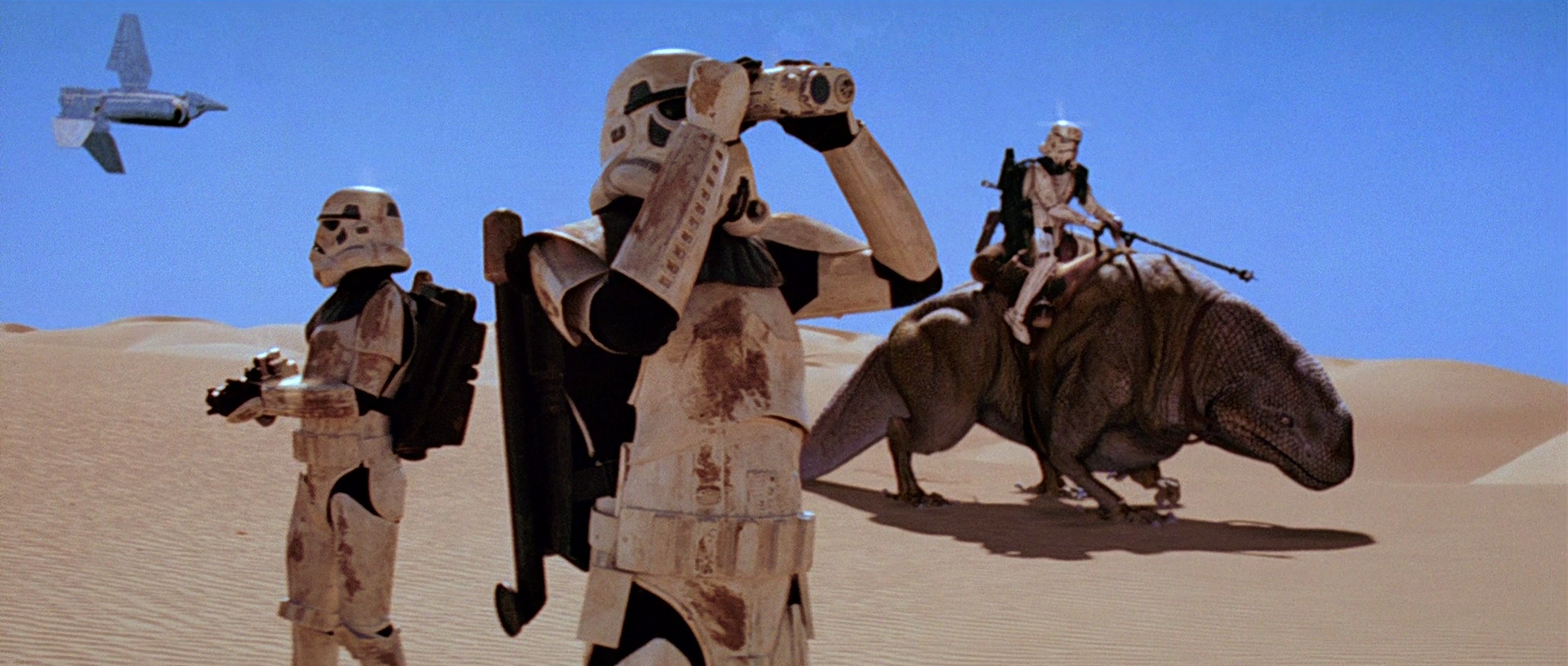
The first thing that comes to my head when I think about making changes to a finished work is the Star Wars Special Edition.
I have always hesitated to make changes to my game once the general public has seen it. Of course, changes have most certainly been made. Bugs must be fixed, typos must be corrected, and when there is a skill that can set the superboss's HP to 1, there is no good argument for why I should allow that to remain in the game.
But most of the time, the changes I made to the game fall into one of two categories: changes so small that it will improve a player's experience without them noticing, or changes so large that I need to drop everything to make sure that gets patched as soon as possible.
From the very beginning, I was never willing to make adjustments a player could notice that isn't just an emergency cover up. Things like a line of dialogue feeling a bit off, or a story beat not hitting quite right, or even a feature that I didn't know how to implement then but I know how to implement now, these are all things I have been very hesitant to change about a finished game. To me, the moment the creator is allowed to go back and "fix" their art completely unchecked is the moment that the creator is given the agency to say that their intentions are the only valid ways to enjoy a work. Obviously I don't feel that way at all! And even if I did feel that way, would improving Disc 1 now be fair to the people that already played through the entire 13 hour game in a worse state just a few months ago?
I am trying really hard to make sure players enjoy Disc 1 to its fullest before they jump into Disc 2. However, Disc 2, which I started working on years after I started Disc 1, is naturally just a better game.
"Every game is an answer to the previous one." -Sean Velasco, Yacht Club Games
This obviously applies to Disc 2. I have seen what I like, what other people liked, what I wish I had added or taken away, and what others wish as well. I am fully confident that Disc 2 is a better game than Disc 1, but the fact of the matter is that Disc 2 is being developed with the expectation that players are going to have to play Disc 1 (a worse game) first. Fortunately, I have peers who are more reasonable than myself.
When I voiced my thoughts on possibly returning to Disc 1 and making some more dramatic changes, as well as injecting the new features that Disc 2 will be adding, my buddy Nate (who has basically been supercharging Disc 2 by being actually good at programming) pointed out that if I want Disc 1 and 2 to be two halves of the same experience, then improving Disc 1 will only serve to improve that overall experience. He's absolutely correct (he frequently is), and upon being given permission to make these changes by the community as well as myself, I decided I ought to go on ahead and improve the full Axial experience.
My manifesto: Unless you're trying to make money, try to make your favourite game.
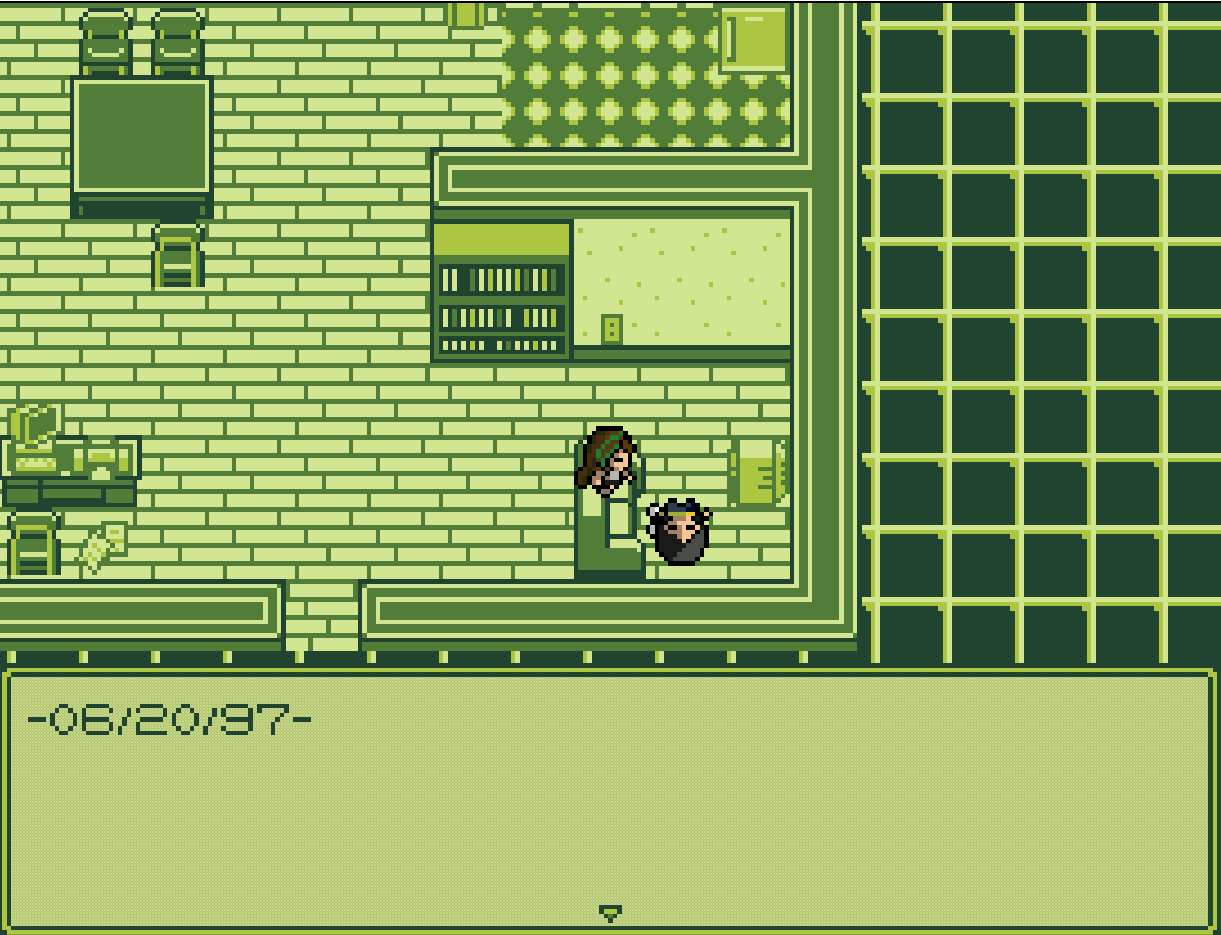
I made Axial the way I did for a reason. This game was created for me above all else. That said, if I can change Axial to improve it for more people without hindering my own enjoyment of the game, that is a net positive. So, even if I don't mind the cryptic elements or overly complicated combat mechanics, the question I need to ask is not "is this really a problem?" but rather, "would I enjoy the game less if I changed this?" And with pretty much all of the changes I'm about to go over, the answer was no.
For starters, I think it's vital that I remember why the game appeals to me personally. Above all else are the combat system and the characters. The two have always gone hand in hand, and while I am very proud of other elements such as the plot or the dungeon design, at its core I feel the changes I make should be in service of those core elements primarily.
SO! Customizing your Command layout is a pretty core element, right? I've always wanted to streamline the process in some way, but I never felt confident in my abilities to make it not only work, but look half decent on the UI while we're at it. Thank god I have Nate.
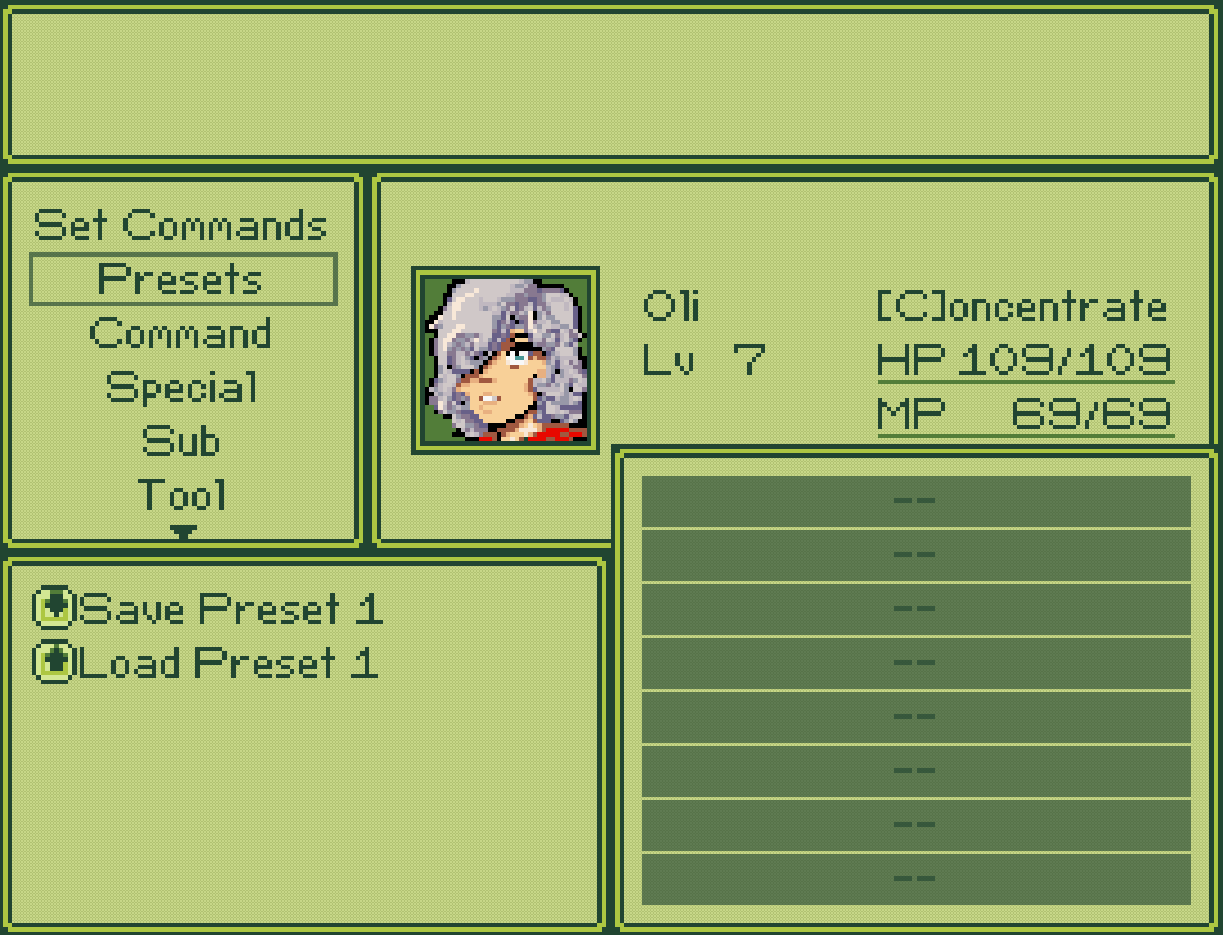
Now you can save and load up to three presets, which will make customization even more fun!
This is the part where I go on a tangent about my appreciation for Nate, who has basically taken every "I don't know how to program that" feature I've wanted to implement and just programmed it for me. He's also the guy responsible for the list of learnable spells appearing with Scanalyze!
This is definitely the new feature I'm most excited about, but improving the game wasn't just a matter of adding new features. There have also been elements that I wanted to change because I just didn't feel they were well designed. The big one for me was Bluewood Forest.
Bluewood was the first "real" dungeon I ever designed. The sewers were a fun way to dip my toes in the concept but they were only a few screens with no real gimmicks. Bluewood was my maiden voyage into dungeon puzzles and mapping, and honestly it was a bit of a flop.
So, I went back and remade basically the entire thing. I didn't spend much time on it, because I wanted to keep the core gimmick the same, and I needed to make sure that any old save files that might be in Bluewood weren't softlocked, but by the time I was done I had created a dungeon that I could say "yeah I can live with the idea of people playing this."
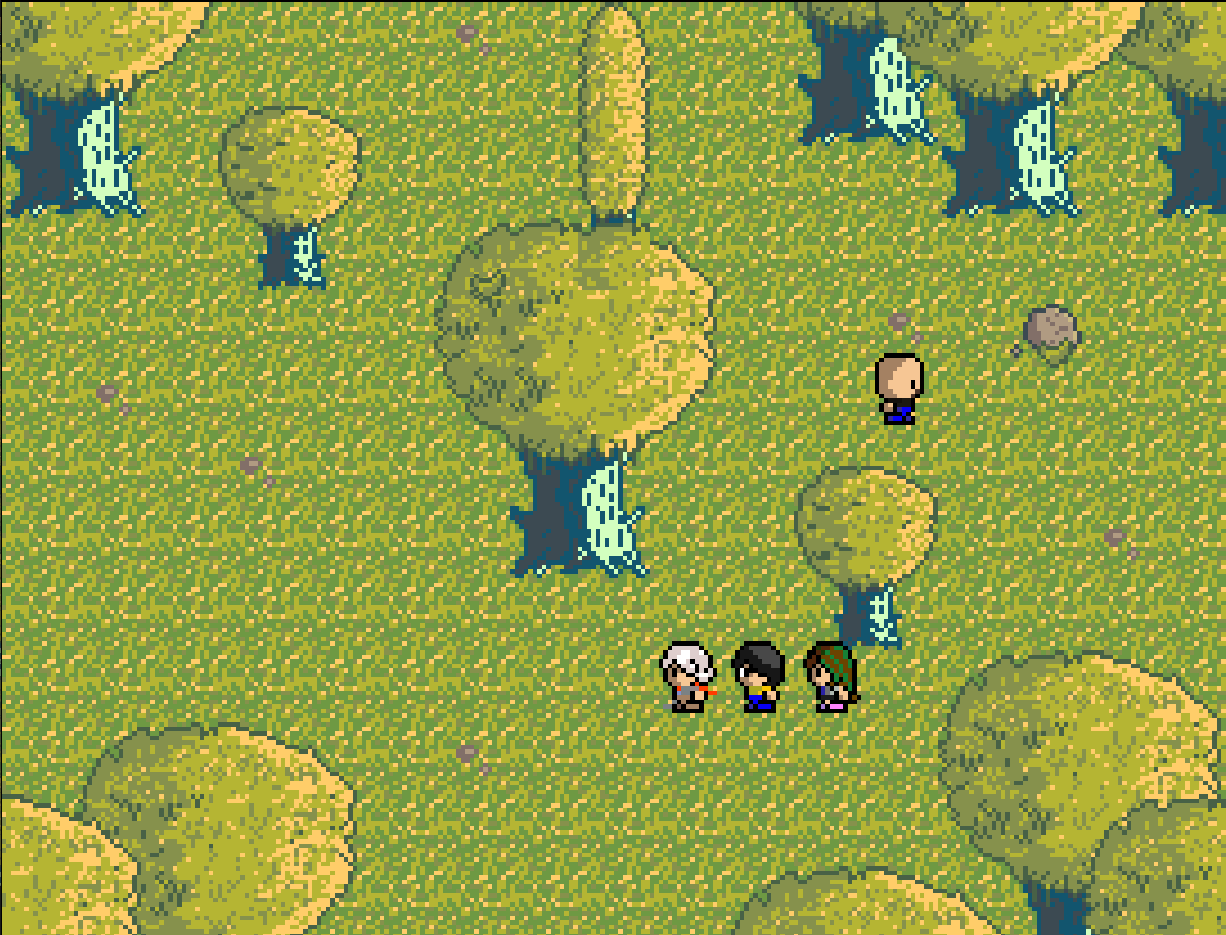
Bluewood now features smaller maps and a more obvious puzzle, without impeding on the tone of the original.
Despite my own issues with it, Bluewood was never the most egregious dungeon in terms of player reception. Honestly, I got a lot of feedback. Maybe too much feedback. It was very overwhelming at times, although often quite positive. It also taught me a pretty useful skill:
Interpreting player feedback, but, like, actually.
I always thought I was pretty decent at taking feedback, and yet, there were a lot things I was just not catching onto.
Obviously, I value feedback from my core audience a ton, but the thing about that core audience is that they're going in biased. If your game REALLY appeals to someone, they're expecting a positive experience and focusing on the things they like. It's reverse-nitpicking, and it's awesome, but it also means that there are often going to be smaller details that don't bother them very much because they're having such a good time. This obviously means that when they do have a complaint, you'd better be listening.
On the flipside, there are going to be bad faith reviewers. People are going to go in with the expectation that they aren't going to enjoy it. Sometimes they'll be wrong, but for the most part a player who is not already on board isn't going to be as twinkle-eyed as your core audience, and some of them are going to be searching really hard for any small nitpick to complain about. My mistake was passing off those nitpicks as nitpicks. I'd often think things along the lines of "This game obviously isn't for you, and not a single player that enjoys this game has brought that up to me, so this isn't a problem." And honestly, that statement isn't false. Those sorts of criticisms are probably nitpicks, and they probably aren't a problem. But what is a problem is treating feedback as a binary. It isn't just about "good" or "bad" for the average game experience, but also a matter of "better". It's very possible that your core players aren't bothered by your UI as it is right now, but that does not mean that they wouldn't appreciate a better UI. The thought may not have even occurred to them, and despite this you can still improve their experience.
Bad faith critics have a lot of value, because they can help you improve the game for the players that you actually like.
Of course, that above statement doesn't mean you should follow every single word of advice the annoying reviewers are giving you. If it would make the game worse for you and your audience, don't cater to them. In fact, don't cater to them in general! But do listen, and ask yourself with each bullet point "would changing this make me enjoy the game more?"

Then there's the Streamer angle.
Honestly, streamers completely changed the way I looked at the game. I'm not gonna lie, watching people stream Axial is always really painful, especially the beginning segments. As a dev, it's inappropriate to give hints or tell them where to go, so often you're just going to have to sit on your hands and try not to shake your head too hard.
But above all, the most valuable aspect about streamers to me is the fact that they have to read your dialogue out loud. When I see three different streamers trip over the same line of dialogue, suddenly I realize that there's actually something wrong with the way that line was written. Admittedly, I don't think streamers are a great end-all for feedback because they tend to be more focused on keeping the stream entertaining as opposed to just playing the game, which means that almost every streamer I've seen has ignored a lot of game mechanics just by virtue of not wanting to spend much time reading text boxes. This is not a bad thing, just an example of a way that a streamer might not paint the whole picture for you.
Anyway, the main takeaway I wanted to make here is that if you're hesitant to tarnish the artistic sanctity of your game, don't be.
I totally understand the feeling. Actually, I wouldn't be surprised if 90% of the people reading this don't feel that way and are completely confused as to why I care. But if you're one of those weirdos like me that feel that a finished work should stay finished, trust me when I say that you aren't hurting anyone by making the changes you want to make. Save backups, listen to feedback, if you're that worried then release them as separate builds or something, but in the end if you feel that you can make your game better, you are only doing good for yourself, your audience, and your game.
Get Axial Disc 2
Axial Disc 2
That's the way it is.
| Status | Released |
| Author | Sawyer Friend |
| Genre | Role Playing |
| Tags | 16-bit, 8-Bit, chiptune, Game Boy, JRPG, Pixel Art, Retro, Singleplayer, Turn-Based Combat |
More posts
- 1.1.7 (13/19/24)Dec 19, 2024
- 1.1.5 (11/30/23)Nov 30, 2023
- 1.1.0 (08/04/23)Aug 05, 2023
- Patch 1.0.5 (07/25/23)Jul 25, 2023
- Patch 1.0.4 (07-15-23)Jul 15, 2023
- Axial Disc 2 OST Out Now!Jul 13, 2023
- DISC 2 UPDATE 1.0.3 (07/09/23)Jul 10, 2023
- Thank YouJul 04, 2023
- Director AMA - 01/18/23Jan 18, 2023
- Director AMA in the Discord, Tuesday at 4 PM MST!Jan 16, 2023
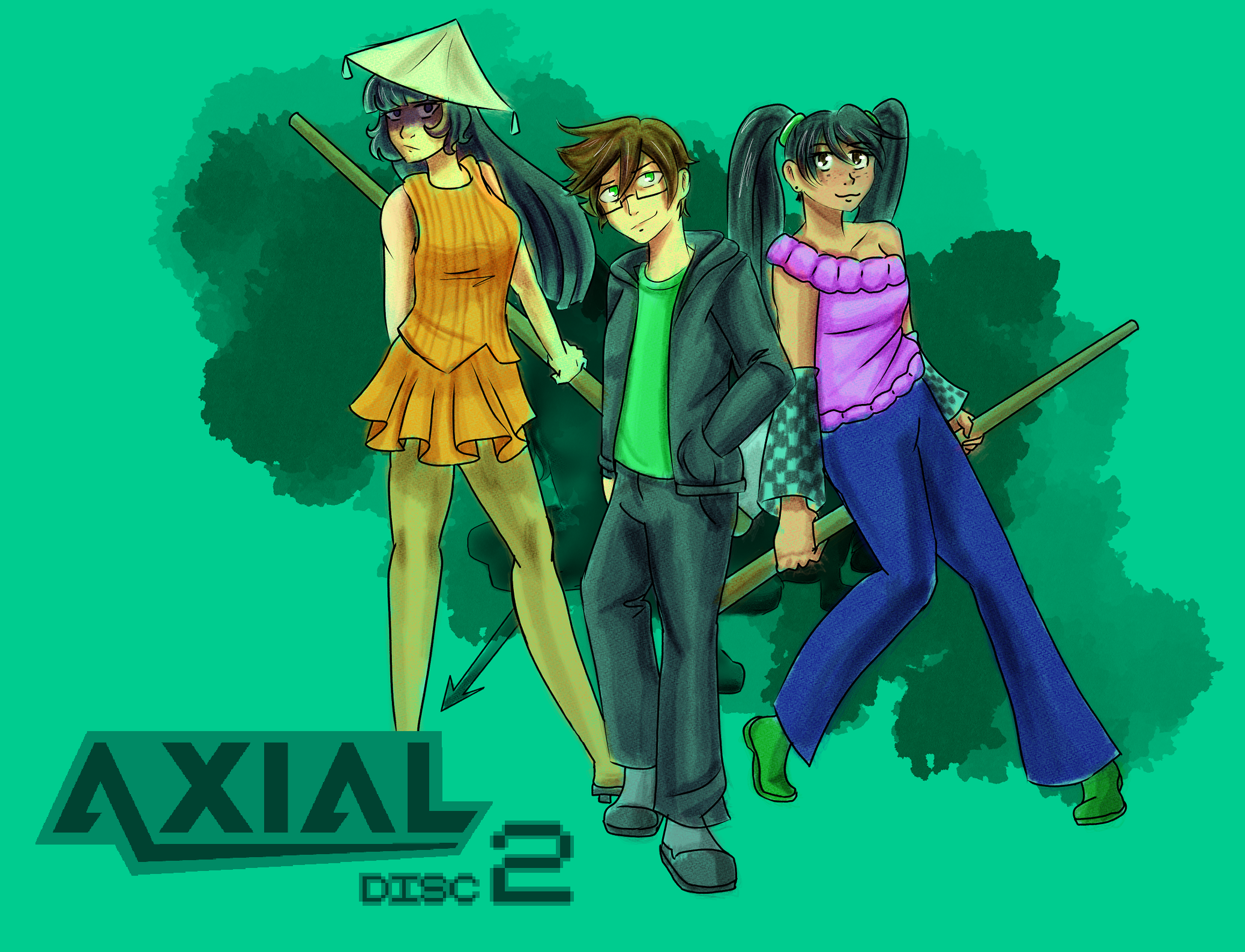
Comments
Log in with itch.io to leave a comment.
I just found out I can like posts
I'd Like this post multiple times if I could.